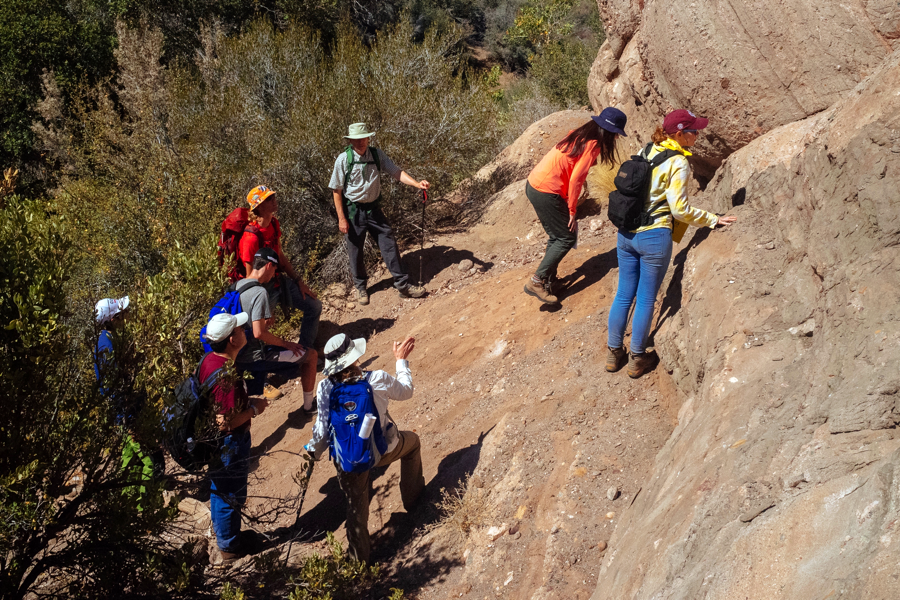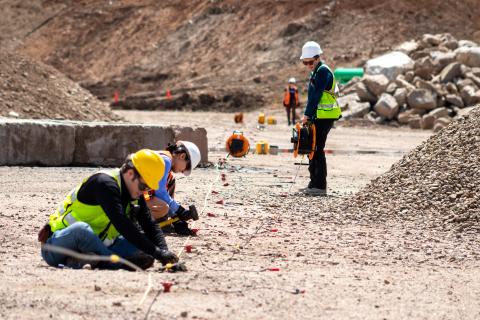All Categories
Featured
Table of Contents
How A Geophysical Survey Is Crucial To Offshore Wind Farm ... in Lockridge WA 2020
Connect with MBA programs looking for candidates like you. Study. Link with master's programs around the nation to get an edge over the competition.

A geophysicist research studies various aspects of the earth. According to the U.S. Geological Survey, they study gravity, magnetic, electrical, and seismic activity events. Geophysicists also document, evaluate, and take measurements of geographic functions and abnormalities. Enjoy a video to learn what a geophysicist: Geophysicists must earn a minimum of a bachelor's degree; however, this is for an entry-level position.
If you want do research study you need to pursue a Ph. D. Undergraduate coursework generally includes geology, mathematics, ecological science, or physics. Advanced degrees require more specific research studies in the specialty of option. Areas can include oceanography, climatic physics, climatology, planetary, petroleum, environmental, and mining. Task prospects are greater if you have a strong background in computer science or technology.
What Is Geophysics? in Leeming Oz 2021
Access to these chances may be limited depending on where you live; nevertheless, internships or summertime programs with geophysical business, university geophysics department, or the U.S. Geological Study can be options. You can find a list of a list of opportunities on the United States Geological Study (USGS) sites' Pathway Programs tab (opens in another link).
If you have yet to graduate high school, taking as many science and mathematics classes as possible would be a plus. Geophysicists likewise deal with computer systems while investigating, so computer courses can likewise be helpful, as pointed out previously in this article. Numerous geophysicists focus on a location of geophysics. Therefore, the job description would change pending on the specialized.
A geophysicist's duties can consist of measuring, tracking, and recording information from various physical properties on earth. They likewise examine and test info received. Geophysicists frequently have to take a trip worldwide to examine geological events that have actually occurred or might have been forecasted. Geophysics is a research-based career field, therefore one should have the ability to assume, problem-solve, and question or obstacle previously held presumptions from their gathered data.
Geophysicist in Girrawheen Oz 2020
Jay Wellik, a geophysicist, studies volcanos. His location of competence in geophysics is investigating why volcanos appear and what indicators there might be that an eruption may occur. He tracks seismic activity and after that follows what happens before, throughout, and after a volcano emerges. Geophysicists typically work full-time hours; however, they typically work irregular hours, as pointed out previously.

You can find additional information about Geophysicists in addition to extra academic materials on the U.S. Geological Survey site (links open in a new window). Laura Stern, of the U.S. Geological Study at the Gas Hydrates Lab in Menlo Park, California: We make a variety of various hydrates in the lab.
We also make co2 hydrate, ethane hydrate, propane, a number of different structures. Liquid nitrogen is really cold. It has to do with 100 degrees colder than the temperature at which these hydrate samples would dissociate, when they would break down to ice plus gas on the tabletop. In here we have a little piece of methane hydrate.
What Does A Geophysical Data Technician Do? in Duncraig Australia 2020
They look like snow, it looks like compacted snow but truthfully, it does consist of gas inside. It's reverting to ice plus gas and then as the ice would melt as it continues to warm, it will end up being water plus gas.
My name is Steve Kirby, I'm a Geophysicist here at the U.S. Geological Study in Menlo Park. I deal with Laura Stern who is likewise a Geophysicist in this lab that adheres towards the examination of planetary ices and gas hydrates. Gas hydrates in nature occur in very remote locations and they are really intricate with the interactions and conditions that they form under and samples that are brought up are under some sort of alternation or decomposition.
This is an uncommon lab and there are just a handful of them worldwide and we are really fortunate to be here at the Geological Study and to have the chance of working on them. Bureau of Labor Data, U.S. Department of Labor, Occupational Outlook Handbook, Geoscientists. National Center for O * Web Advancement.
Geophysics in Fremantle Western Australia 2021
This video was produced by the federal government for the U.S. Geological Survey. The USGS Gas Hydrates Lab is funded by the Department of Energy and the USGS Gas Hydrates Project.
Latest Posts
What Should I Do To Be A Geophysicist? in Subiaco WA 2022
Geophysicist - Jobs And Skills Wa in Midland Western Australia 2023
Career Guide: Geophysicist in Tapping Aus 2022